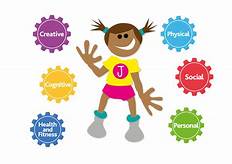Online Safety
At Nancealverne we follow all filtering and monitoring principles.
Our E-safety lead in school is Jamie Woolcock and is available to help or talk to if needed. Call the office to talk to him or email him on: jwoolcock@nancealverne.org.uk

Short videos for parents and carers: delivering online safety at home
As well as all of the work in school to keep children safe in all areas of school life, we are also teaching children to live responsibly and safely in a digital world.
ICT in the 21st Century is seen as an essential resource to support learning and teaching, as well as playing an important role in the everyday lives of children, young people and adults. Consequently, schools need to build in the use of these technologies in order to arm our young people with the skills to access life-long learning and employment.
Information and Communications Technology covers a wide range of resources including; web-based and mobile learning. It is also important to recognise the constant and fast paced evolution of ICT within our society as a whole. Currently the internet technologies children and young people are using both inside and outside of the classroom include:
- Websites
- Apps
- E-mail, Instant Messaging and chat rooms
- Social Media, including Facebook and Twitter
- Mobile/ Smart phones with text, video and/ or web functionality
- Other mobile devices including tablets and gaming devices
- Online Games
- Learning Platforms and Virtual Learning Environments
- Blogs and Wikis
- Podcasting
- Video sharing
- Downloading
- On demand TV and video, movies and radio / Smart TVs
Whilst exciting and beneficial both in and out of the context of education, much ICT, particularly web-based resources, are not consistently policed. All users need to be aware of the range of risks associated with the use of these Internet technologies and that some have minimum age requirements (13 years in most cases).
At Nancealverne, we understand the responsibility to educate our pupils on eSafety Issues; teaching them the appropriate behaviours and critical thinking skills to enable them to remain both safe and legal when using the internet and related technologies, in and beyond the context of the classroom.
If you are concerned about the suitability of a TV show or a game for your child then 'common sense media' is a very good website that provides an overview of all media types, with a suitability rating, including 'positive messages', 'violence' and 'language' can be found at:- commonsensemedia.org. Other websites that offer similar services are the British Board of Film Classification (or the BBFC), The Parent Zone, Childnet International and ThinkuKnow.
To support the prevention of children having access to a range of materials and sources of information that can lead them to be vulnerable and at risk we encourage the use of ‘Digital Parenting’ (https://parentzone.org.uk/order-your-free-vodafone-digital-parenting-magazine) who have developed a suggested timeline detailing the ages that they suggest children access technology. The document can be downloaded here.
If you are concerned about the content that your children are accessing online then there are a number of agencies that can support. ‘Digital Parenting’ (copies can be ordered from here) have a list of ways to report a concern from Facebook and YouTube to Google and Xbox Live. There is also advice on reporting these concerns to the police and other authorities. The document can be downloaded here.
Hidden benefits of playing videogames during lockdown
E-SAFETY TOP TIPS
If an inappropriate site or image is accessed, play the situation down. Always report the incident to the E-Safety Co-ordinator
- Monitor use of chat rooms, social networking sites or mobile phones for inappropriate use
- Encourage pupils to report inappropriate use of mobile phones, email or the internet
- Don’t assume it is the pupil’s fault – once blamed, a pupil might never confide again
- Be vigilant when asking for pupils to search for images.
- Regularly remind pupils of a key E-Safety message “Never give out personal details online”
- Remind pupils that all downloads must be linked to curriculum work
- Ensure that pupils cannot be individually identified in website images
- Ensure protection of teacher and admin passwords
- Uk Safer Internet Centre
- Connect Safely
- Safer children in a digital world
- thinkuknow 4-5s home activity sheet 1
- thinkuknow 4-5s home activity sheet 2
- thinkuknow 4-7s home activity reward chart
- thinkuknow 4-7s home activity reward chart
- thinkuknow 5-7s home activity sheet 1
- thinkuknow 5-7s home activity sheet 2
- thinkuknow 8-10s home activity sheet 1
- thinkuknow 8-10s home activity sheet 2
- thinkuknow 11-13s home activity sheet 2
- thinkuknow 11-13s home activity sheet
- thinkuknow 14 home activity sheet 1
- thinkuknow 14 home activity sheet 2
- first to a million powerpoint










